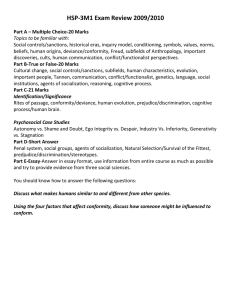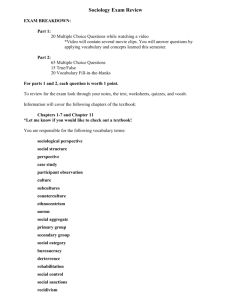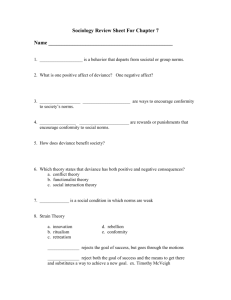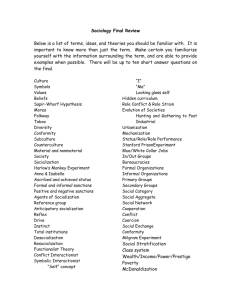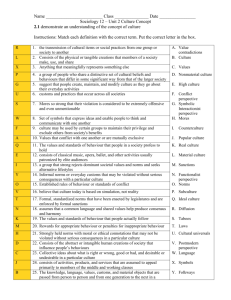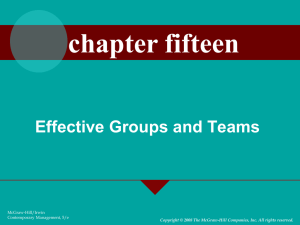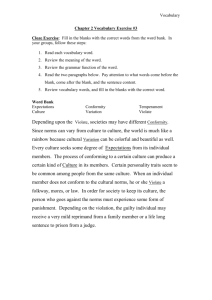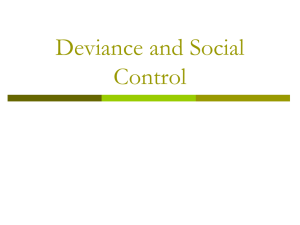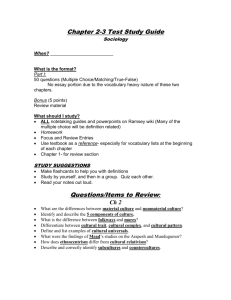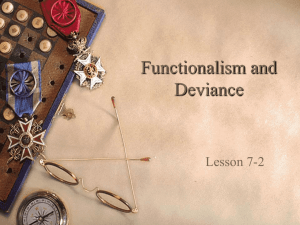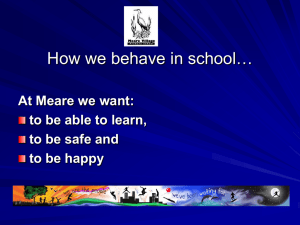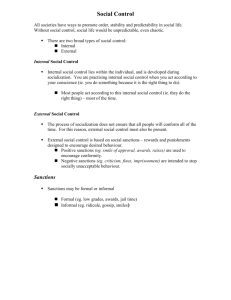Unit 5—Social Control: Deviant and Conformist Behaviour
advertisement
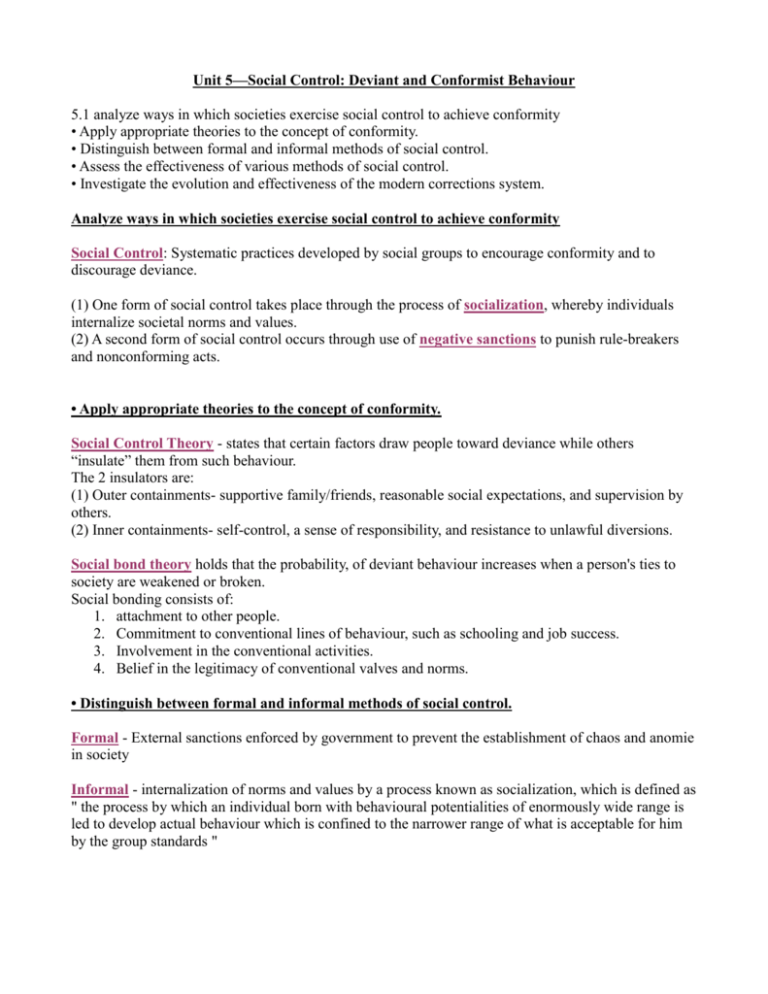
Unit 5—Social Control: Deviant and Conformist Behaviour 5.1 analyze ways in which societies exercise social control to achieve conformity • Apply appropriate theories to the concept of conformity. • Distinguish between formal and informal methods of social control. • Assess the effectiveness of various methods of social control. • Investigate the evolution and effectiveness of the modern corrections system. Analyze ways in which societies exercise social control to achieve conformity Social Control: Systematic practices developed by social groups to encourage conformity and to discourage deviance. (1) One form of social control takes place through the process of socialization, whereby individuals internalize societal norms and values. (2) A second form of social control occurs through use of negative sanctions to punish rule-breakers and nonconforming acts. • Apply appropriate theories to the concept of conformity. Social Control Theory - states that certain factors draw people toward deviance while others “insulate” them from such behaviour. The 2 insulators are: (1) Outer containments- supportive family/friends, reasonable social expectations, and supervision by others. (2) Inner containments- self-control, a sense of responsibility, and resistance to unlawful diversions. Social bond theory holds that the probability, of deviant behaviour increases when a person's ties to society are weakened or broken. Social bonding consists of: 1. attachment to other people. 2. Commitment to conventional lines of behaviour, such as schooling and job success. 3. Involvement in the conventional activities. 4. Belief in the legitimacy of conventional valves and norms. • Distinguish between formal and informal methods of social control. Formal - External sanctions enforced by government to prevent the establishment of chaos and anomie in society Informal - internalization of norms and values by a process known as socialization, which is defined as " the process by which an individual born with behavioural potentialities of enormously wide range is led to develop actual behaviour which is confined to the narrower range of what is acceptable for him by the group standards " • Assess the effectiveness of various methods of social control. Social Control: Systematic practices developed by social groups to encourage conformity and to discourage deviance. Deviance: Any behaviour, belief, or condition that violates culture norms in the society or group in which it occurs. One form of social control takes place through the process of socialization, whereby individuals internalize societal norms and values. A second form of social control occurs through use of negative sanctions to punish rule-breakers and nonconforming acts. Family, peer groups,mass media, and school influence your identity. If the family you belong to didn’t agree with the law then you would then develop the same behavioural deviance. Because you feel like you belong to that group and you don’t want to lose those connections. Socialization can be good or evil depending on how your family, peer groups, mass media, and school teach you to believe. Punishments and sanctions influence how you behave because people will follow the rules so they don’t receive the sanction. People won't speed so they don’t get a ticket, for example. • Investigate the evolution and effectiveness of the modern corrections system. Punishment Until recently, there was only one federal prison for women in Canada. So all female offenders receiving a sentence of two or more years were sent to Kingston rather than staying in their own provinces closer to family and friends. Restorative Justice Restorative justice is an option you can choose when you do something wrong by committing a crime or offence and if you go through with it, the community or person involved will be brought into a room to talk about what or how you can change/fix that problem and make it better for you and everyone else. Despite these concerns, restorative justice programs now provide a valuable alternative to the formal justice system. Community Correction Shifts responsibility for corrections back to the community and minimizes the separation of the offender from society at a number of different stages in the correctional process part of restorative justice. Works financially, more fair, the offender may benefit from keeping tie with family and friends and make them less likely to commit another crime. Reduces the likelihood of imprisonment.
